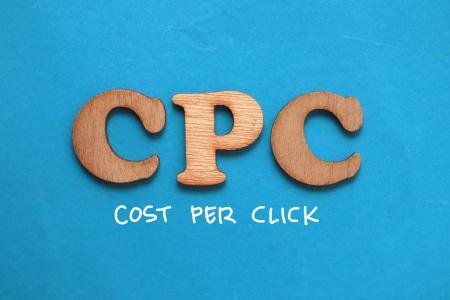As a PPC specialist and agency owner, I’ve seen many of the same questions come up again and again. From small businesses to large corporations, these are the top six PPC questions I hear most often. Understanding the nuances and common misunderstandings of PPC is critical for my clients. As a result, I’m sharing the six most common PPC questions and their answers to help educate and inform readers on the importance of PPC.

Here are the top six most commonly asked questions about Pay–Per–Click (PPC) advertising:
Top Six PPC Questions #1: I Don’t See My Google Ads Every Time I Do A Search?
Google Ads are a powerful tool for businesses to reach potential customers, but it’s not guaranteed that your ads will show up every time someone searches for your product or service. There are a number of reasons why your Google Ads may not show up every time you search.
First, your ads may not appear if you don’t have a high enough Quality Score. Quality Score is a metric used by Google Ads to measure the quality of your ads and keywords. If your Quality Score is low, Google won’t show your ad as often as it would if your score was higher. Google defines a PPC quality score as a metric used to measure the relevance and expected performance of a PPC ad. It is based on a variety of factors, including the relevance of the keywords, the click-through rate of the ad, the relevance of the landing page, and the historical performance of the ad. The higher the quality score, the better the ad’s expected performance and the lower its cost per click.
Second, your ads may not appear due to the competition. If there are other businesses advertising for the same keyword, the competition can be fierce. Your ad may be outranked by other ads with a higher Quality Score or a higher bid amount.
Finally, your budget may be a factor. If your budget is too low, Google Ads won‘t be able to generate enough revenue to show your ad as often, meaning your ad‘s reach could be limited. To make the most of your limited budget, you should be strategic with your targeting and keyword selection. However, even if you optimize your targeting and keywords, it may not be enough to compete with higher–budget competitors. Simply put, if you want to play, you have to be willing to pay more.
In addition to these reasons, your ads may be scheduled to run on specific days and times. Your ad campaigns could also target specific geographic areas such as countries, states, cities and zip codes. If you happen to search outside of those parameters, your ads will not show.
Don‘t worry. Your ads might not always appear everywhere, but with the right preparation and optimization, they can still be effective.
Top Six PPC Questions #2: What’s An Impression?
With PPC and Google Ads, impressions often come in the hundreds and thousands per month. Once an account is setup properly, impressions are a key benchmark to follow. So just what is an impression? In short, an impression is counted every time your ad is viewed on the SERP page, or Search Engine Results Page. The Google cursor is blinking, someone types in a search phrase related to your product or service and boom, your ad shows up on the Google search page. When that ad shows or is viewed, it’s an impression. And, hopefully your ads show on the top 20% of the page, or what’s called the top of the fold.
Impressions are free. They don’t cost you a penny so they’re great for brand awareness and exposure. You’re only charged when someone clicks on your ad so getting hundreds or thousands of impressions gets your brand mind share. Mind share helps potential customers and leads remember your brand. They may not engage immediately but impressions often bring them back as they see your products based on keyword searches off the blinking cursor. Most people don’t even know how valuable impressions are. I educate them and then the lightbulb goes on.
Impression Benefits
Another benefit of impressions is that they show one essential factor for PPC success: Demand. Yes, impressions measure demand. For example, if you’re selling IT products and you’re getting 10,000 impressions per month, you know there is strong demand for IT products in the market your targeting, whether it’s local, domestic, or international. Five hundred per month and there may be little demand. Strong demand is critical because it shows there’s a market for your product. No demand and you have few searches; few searches and you have few clicks; few clicks and you have little if any leads or revenue.
As a matter of PPC best practices, my team looks at impressions first when we sort PPC account data coming in. We look at impressions then clicks for both ads and keywords. Once we see strong demand for specific keywords and ad copy we know we are hot on the trail to success. Demand, or impressions, is another way that shows interest. Interest leads to activity and engagement. If customers are interested they buy.
Top Six PPC Questions #3: What’s Impression Share?
Impression share is a percentage (from zero to one hundred) that shows how often your ads appear. For example, an impression share of 60% means that your ads show for six out of every ten searches. A higher impression share indicates that your ads are more visible than those of your competitors.
To increase your impression share, you will need to invest in a strong budget and a well–designed PPC account build. Without a large enough budget, your ads will not be able to compete in the SERP. You will need to use the Google Keyword Planner to determine the average cost per click in your given market and industry, in order to determine how much you need to budget for your PPC campaigns.
If you don’t have a strong budget your ads won’t show. Ads that don’t show won’t get clicks. No clicks mean no leads or sales.
Bottom line for a strong impression share, which needs to be 70% plus if possible: You have to pay to play. In PPC, you have to invest in a solid budget to get the return on ad spend needed. You have to show up for the party.
Top Six PPC Questions #4: Why Is My Average Cost Per Click Different Than My Friends PPC Account?

This one I get all the time. Clients send an email after asking a friend of theirs what their average cost per click is. If their friend’s average cost per click is lower than theirs, they may get upset. “Why am I spending more,” is the frustration. This implies that all average click through rates are created equal, but that’s not the case. So why? That does not seem fair.
The average cost per click can vary from industry to industry and from market to market. A lawyer may have an average cost per click of $100 where a real estate agent may be only $5 per click. Each industry has different competitive demands and search volumes that Google uses to determine a fair average cost per click.
Different PPC Campaigns Have Different CPCs
CPC also depends on what type of PPC campaign is running. Ecommerce or lead generation and search ads or display ads. For example, if a website is an ecommerce site, then chances are they will be running Google Shopping ads. Google Shopping ads have a lower average cost per click than search-based text ads. It’s not unusual for Google Shopping ads to have an average cost per click in the $0.50 cents to $1.50 range. Google text ads used for search and often lead generation campaigns could have an average cost per click in the $3 to $150 (and everything in between), range depending on the industry.
The average cost per click is not an apples-to-apples comparison. Do the research first. I will do such research using the Google Keyword Planner so I know the average cost per click in a given market. I can then recommend the monthly starting needed to be competitive and the above-mentioned impression share to make your campaign competitive. There are other 3rd party keyword research tools to further determine the best keywords and the average cost per click.
Top Six PPC Questions #5: How Much of A PPC Budget Do I Need To Be Successful?
Another popular question. Often clients think they only need to spend $300 to $500 per month for success. In most markets it’s not. Usually, you need a monthly budget of at least $1,000 to $5,000 per month to be successful with Google Ads. This is why one of the first questions I ask a prospective client is this: “What is your monthly marketing budget you are willing to invest in your business?” If all they have is $300 then I recommend they move on. PPC is not a fit. My job is to set them and my agency up for success so an “on the cheap” budget is a guarantee of failure and wasted money.

Do The Research
This question also gets back to the research needed to determine the average cost per click. If the average cost per click is $4 and your monthly ad spend budget is $500 then that breaks down to a $16 per day budget. This means your only good for 4 clicks per day. In a competitive industry, your budget will thus run out early in the day, kill your impression share, and then allow your competitor with a $2,000 per monthly budget to wax you off the floor with tons more clicks. They will also get your business.
The answer to this question will vary depending on the type of business, the size of the audience, and the objectives of the PPC campaign. Generally speaking, businesses should set aside at least 10–20% of their budget for PPC campaigns. However, businesses should adjust this budget depending on their specific needs. For example, a business targeting a large audience may need to dedicate a larger portion of their budget towards PPC in order to be successful.
Some markets have a low cost per click, such as niche markets but that’s rare. You must have a PPC expert to the math for you so the needed budget is clear up front. Remember, you have to pay to play. And, if you pay you can often play to the degree where you get a positive ROAS, or Return On Ad Spend where your PPC campaigns generated enough revenue to pay for themselves plus a profit margin (Revenue generated divided into ad spend). That’s the goal but it takes time, which leads to my final top five PPC question.
Top Six PPC Questions #6: How Long Before PPC Gets Results?
Another frequent question and probably the most important. We often want results now and we want them fast. So just how long does it take to generate leads and sales with PPC?
The answer to how long it takes to generate leads and sales with PPC is not an exact one; it requires time, patience, and data.
Time is on your side but allow me to explain. PPC advertising is smart advertising. Within the first month you get tons of actionable data. This data allows you to optimize the account and campaigns to save money and operate more efficiently. With all this data the optimizations increase the click through rate and thus the relevancy of the PPC campaigns. In short, more relevant clicks matter because you are capturing warm intent. This ensures that the potential leads and customers clicking on your ads are ready to call, fill out a form, or buy.
You want warm customers not cold tire-kicking customers that waste your hard-earned budget. Warm customers increase your profit margin because you don’t have to spend as much to find them. Over time we can thus reduce the average cost per lead, too. That’s key because you want to find buying customers at the lowest possible cost.
You can’t expect to see results overnight. It takes time for campaigns to mature and convert. Usually, it takes at least 30–60 days for a campaign to begin to yield results. However, this can vary depending on the complexity of the campaign, the size of the budget, and the market itself. It’s important to be patient and to focus on optimization and testing in the early days of a campaign in order to maximize future results.
After reading this post you now know more than many about what I hear as the top six PPC questions. Ultimately, it is important to understand the process and the requirements of PPC campaigns before investing in them. At Atkins Marketing Solutions, we are available to provide our expertise and help you create a successful PPC campaign that fits your market and budget.
If you have further questions or need a professional, dedicated PPC agency to manage your advertising, contact us today. We’ll do the needed research to determine your budget plus other factors before you invest in a PPC campaign strategy. Our up-front research is free to see if there’s a fit for your market, PPC, and Atkins Marketing Solutions. If we find a fit and your interested, we’ll assemble a detailed proposal with your recommended monthly spend budget plus our management process and fees.
Stuart Atkins


Leave a Reply